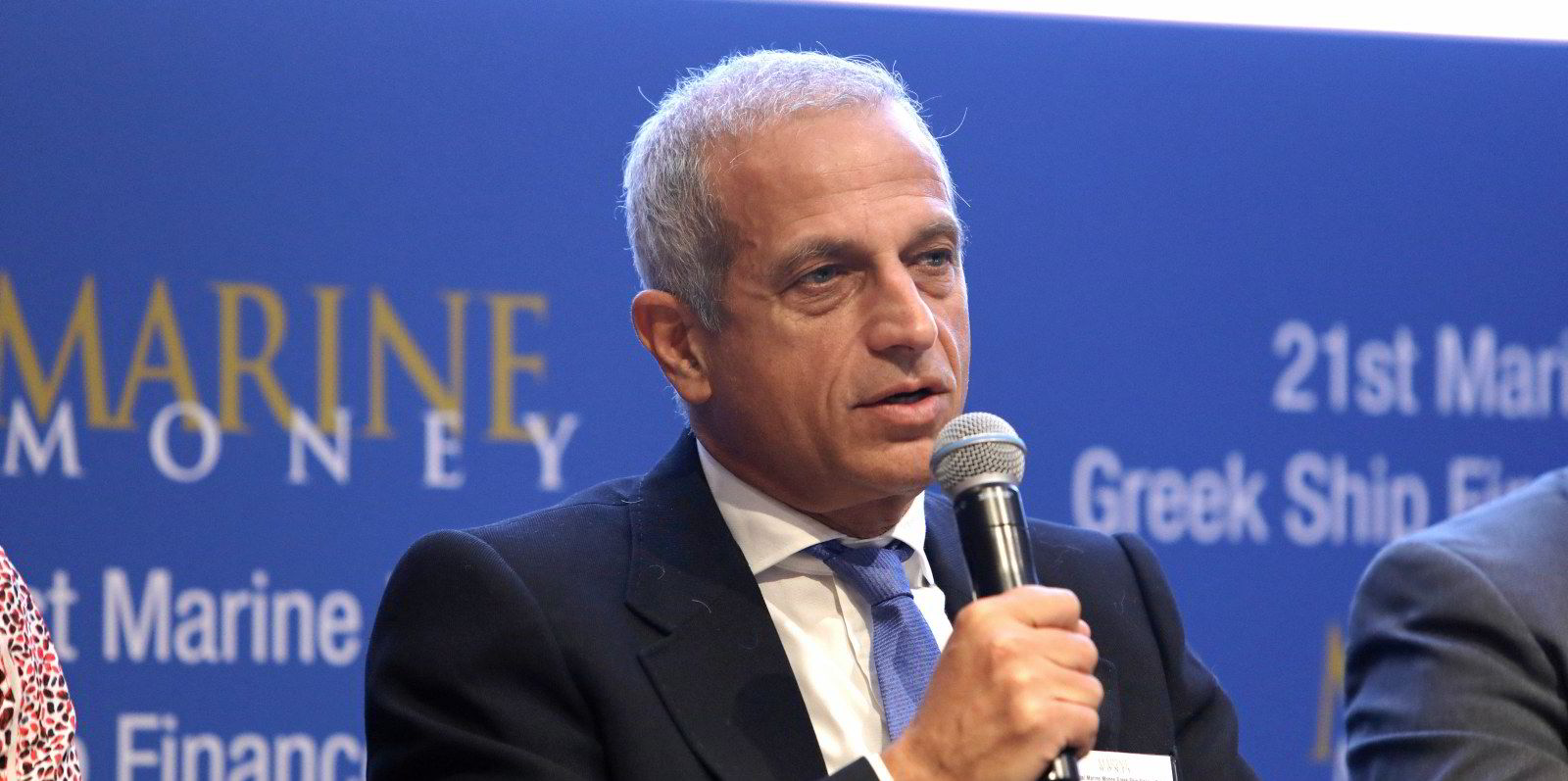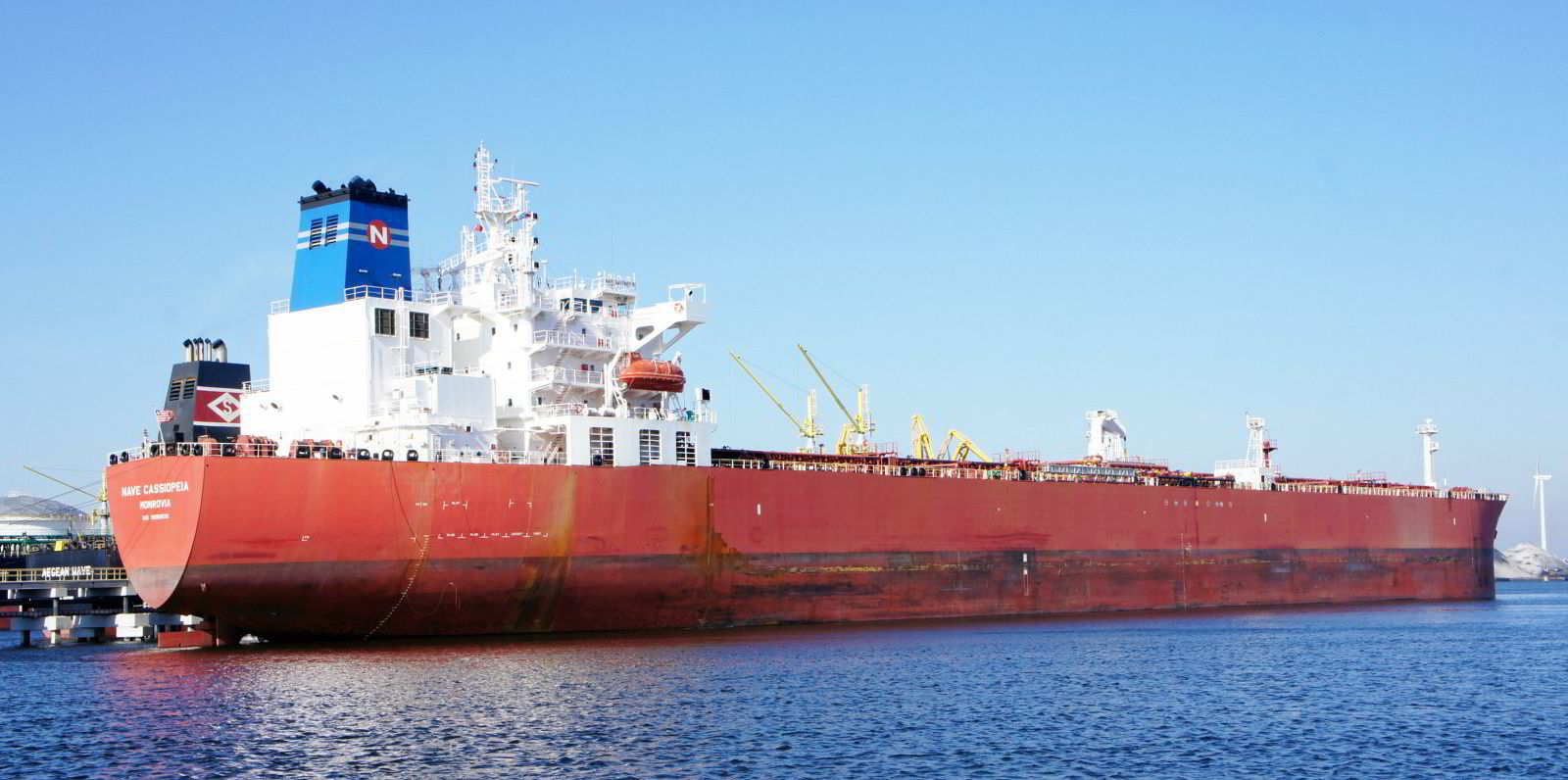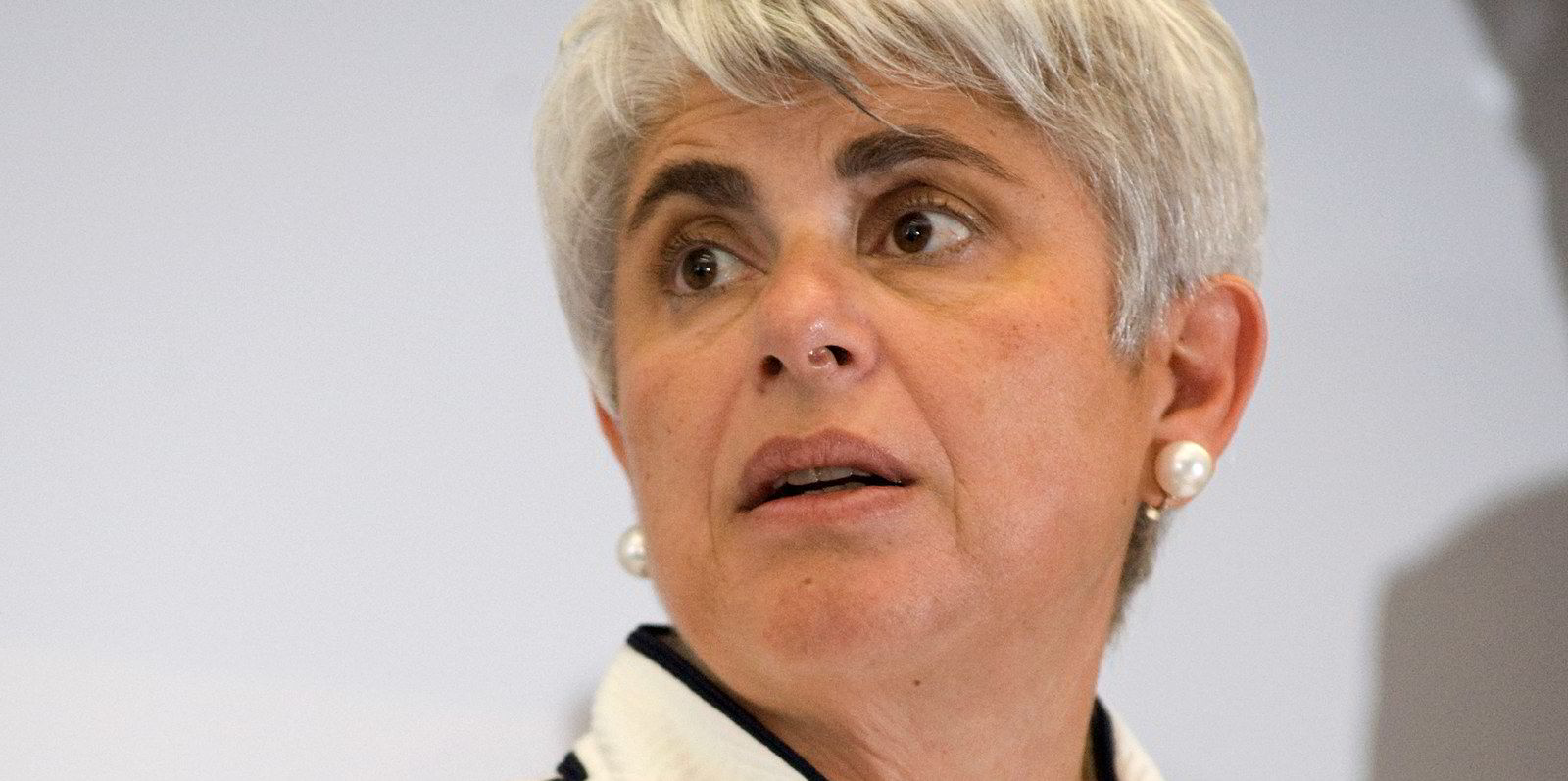In the never-ending debate on whether it’s better for public shipping companies to own just one type of ship or have diversified fleets, Angeliki Frangou's recent merger move seems to have swung the pendulum toward mixed fleets.
But in a panel discussion at a Marine Money event, defenders of pure-play fleets expressed doubts over the appeal to investors of diversified shipowners.
Seven months after absorbing containership unit Navios Maritime Containers, Frangou’s Navios Maritime Partners recently gobbled up her group’s deeply indebted tanker unit, Navios Maritime Acquisition.
The transaction created a 143-ship goliath that is roughly balanced between bulkers, containerships and tankers, with an estimated value of $4.5bn and a combined market capitalisation of more than $820m, according to market prices at the close of Thursday.
In her first public comments after completion of the merger, Frangou defended the move, dismissing concerns she has created a hotchpotch conglomerate of assets that investors might eventually not care for.
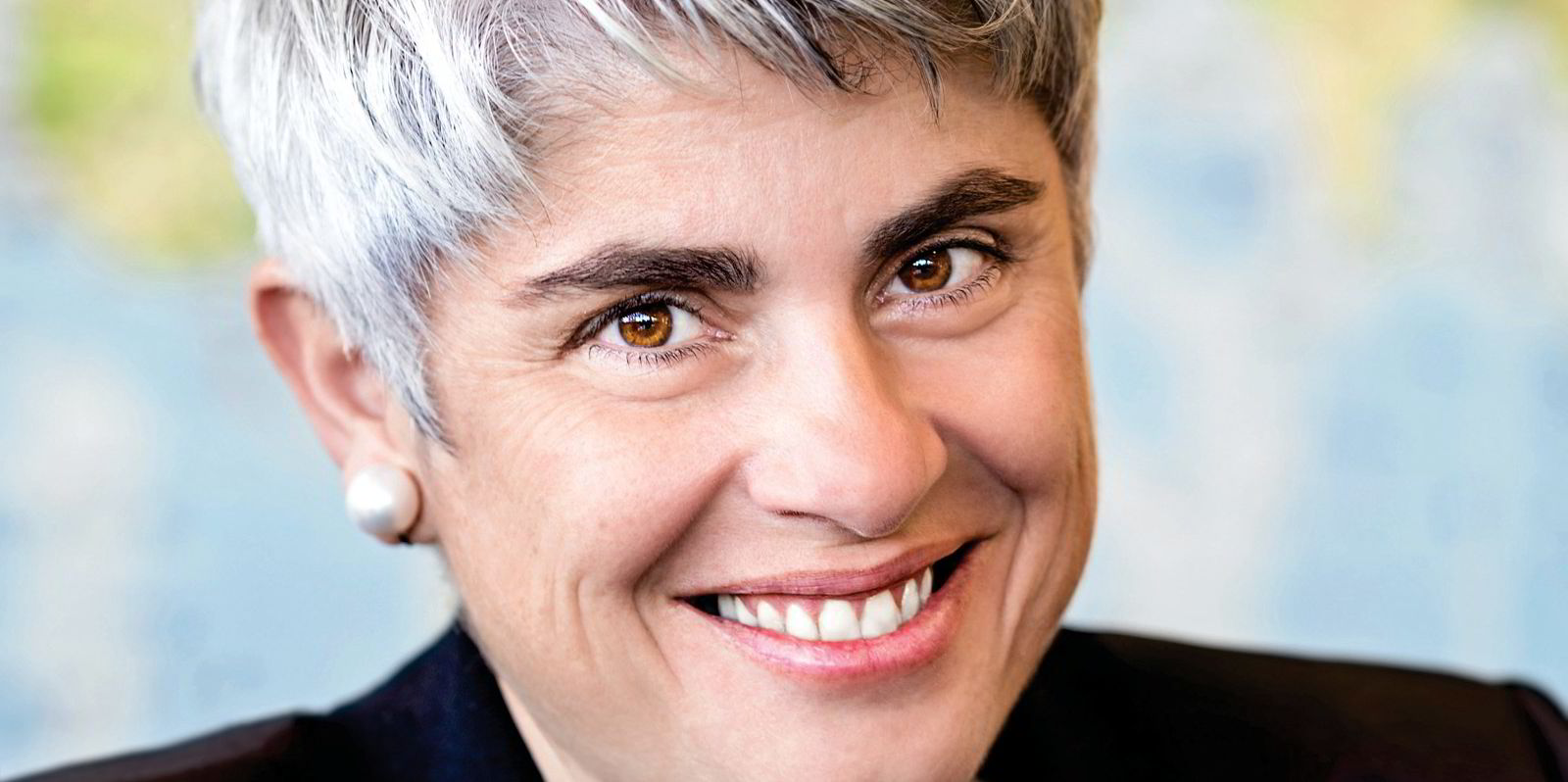
“We have seen the ‘live-and-die-by-the-sector'. This is a challenged business model,” Frangou told the Marine Money conference in Athens on Thursday.
“We need companies that can go through the cycles.”
Other Greek-controlled public companies have gone down the diversification path as well. Backed by record profits from its traditional containership fleet, US-listed Costamare earlier this year spent more than $500m to assemble a dry bulk fleet of 37 vessels.
Containership player Capital Product Partners is expanding into LNG carriers.
To split or not to split?
The new trend, however, leaves some players cold.
Speaking at a different Marine Money panel just a few hours after Frangou, another Greek shipowner said he is sticking to his guns by keeping different vessels in different entities.
Aristides Pittas said he too initially believed that it was a "great idea" to offer investors lower risk through fleet diversification. Euroseas, the US-listed company he founded, featured a mixed fleet of bulkers and containerships for several years.
In 2018, however, Pittas spun off his bulkers into Eurodry, a small and separate, pure-play outfit.
"We decided to do the spin-off when we found out that what investors really wanted was to choose themselves the sector they would be in," he said.
Multi-asset company may enjoy more balanced, steady revenue but they don't offer the huge returns single-asset companies promise, Pittas explained.
"Investors, at least in shipping, are more gamblers than low-burn investor. I think the majority of shipping investors like to go in and out of stocks and buy the shares low and sell them high and that’s the most important thing for them."
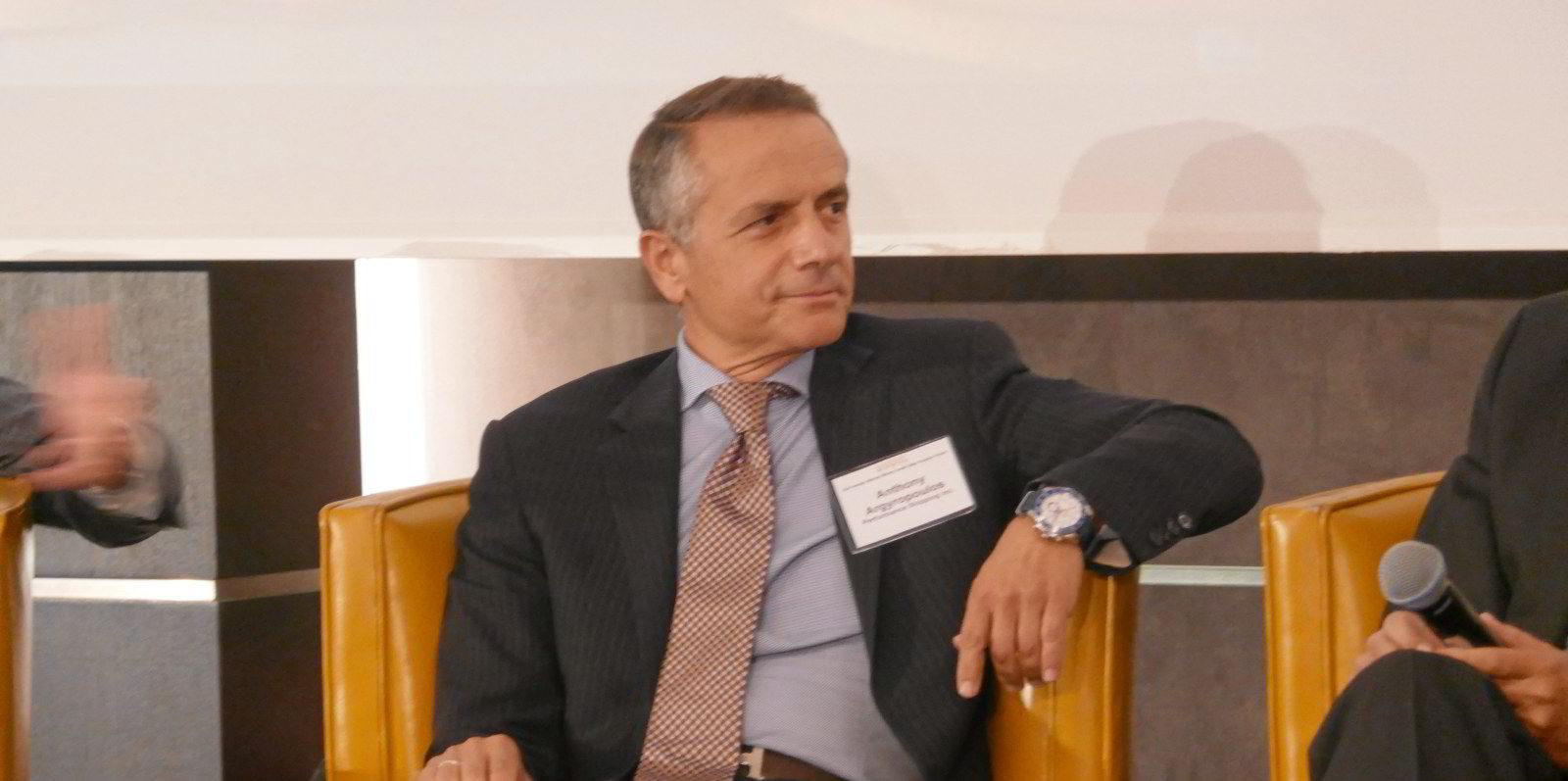
A senior executive with Tsakos Energy Navigation (TEN), a New York-listed tanker outfit that has a small exposure in LNG carriers as well, offered a similar view of shareholders.
"Unfortunately, [shipping] investors today are in their majority, if not in their entirety, day traders," said Harrys Kosmatos, the company's corporate development officer.
"Even if you offered them a double-digit dividend yield, short-term investors wouldn't care. ... We need to see sticking money".
Kosmatos added that spin-offs, however, can be risky for the same reason, especially for companies with small fleets lacking the scale to do much with their ships and then remaining stuck at the mercy of fickle, short-term investors.
A company with a spin
Spin-offs will remain a popular tool, said the panellists. Even pure-play public companies used them lately.
On Wednesday, Diana Shipping announced plans to spin off three of its oldest bulkers in a vehicle that will float separately on the Nasdaq next month.
The new company, OceanPal, will belong to existing Diana shareholders and has options to buy six additional Diana ships.
Spin-offs and mergers are bound to remain the only game in town, as long as relatively low stock market valuations of existing listed companies discourage private ones from considering going public, the panelists said.
"In today's market, it's quite challenging for a company to go public," said Anthony Argyropoulos, a veteran investment banker who is now chief financial officer with New York-listed Performance Shipping.
Pittas cited an even simpler reason for why IPOs are off the table.
"We have enough listed companies already," he said. "Anybody who wants to invest can easily do so in one of those entities. I really don't see why they would invest in a new IPO."
